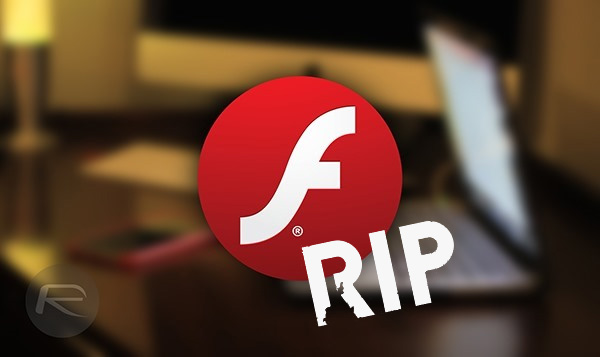It feels like it has been a long time coming but Adobe has officially published plans to end the life of its Flash web framework, citing specific plans to “stop updating and distributing the Flash Player” at the end of 2020.
As part of that announcement, Adobe has championed other open formats and is encouraging content creators to migrate Flash-based content across to accepted formats such as HTML5 and WebGL.

The end-of-life of Flash appears to have been coming for quite some time. Standard end-users have long been complaining about the performance, security and system requirements of Flash, whereas companies like Apple have also publicly made their feelings on the technology known, with Steve Jobs very famously penning an open letter in the year 2010 citing six extremely valid reasons on why Apple’s mobile devices don’t support Flash content. This was at the time when Flash on Android was a thing before Adobe pulled the plug in 2012.
A full decade later, it seems that Adobe is finally coming around to that way of thinking:
In collaboration with several of our technology partners – including Apple, Facebook, Google, Microsoft and Mozilla – Adobe is planning to end-of-life Flash. Specifically, we will stop updating and distributing the Flash Player at the end of 2020 and encourage content creators to migrate any existing Flash content to these new open formats.
This is definitely a decision that has been a long time in the making, but one that clearly hasn’t been taken lightly by Adobe, and one that has been thought out rationally and put in place alongside a real migration plan. The accompanying blog post on the announcement fully concedes that many businesses have been built around Flash technology, which is why the company needs to remain “committed to supporting Flash through 2020, as customers and partners put their migration plans into place.”
This isn’t a knee-jerk reaction, but clearly, a decision which has been executed correctly and for the right reasons as Adobe encourages creators to adopt more modern formats. It’s also definitely good news for those partners which Adobe references in the post, such as Microsoft and Apple. Those companies have had to go above and beyond over the years to ensure that their own platforms are secured against a number of the exposed vulnerabilities which have existed in Flash and become known over the years.
For now, Adobe will continue to issue regular security updates for Flash on major platforms, but after 2020, it’s farewell old friend.
(Source: Adobe)
You may also like to check out:
- Download iOS 11 Public Beta 3 And Install The Right Way, Here’s How
- Download iOS 11 Beta 4 OTA Configuration Profile Without UDID / Developer Account [How-To Tutorial]
- Download: iOS 11 Beta 4 Released For Devs, Here Are The Details
- New In iOS 11 Beta 4: Release Notes, Changes, Features
- How To Downgrade iOS 10.3.3 / 10.3.2 / 10.3.1 On iPhone Or iPad
- Jailbreak iOS 10.3.3 / 10.3.2 / 10.3.1 / 10.3 For iPhone And iPad [Latest Status Update]
- Download iOS 11 Beta 4 & Install On iPhone 7, 7 Plus, 6s, 6, SE, 5s, iPad, iPod [Tutorial]
You can follow us on Twitter, add us to your circle on Google+ or like our Facebook page to keep yourself updated on all the latest from Microsoft, Google, Apple and the Web.
